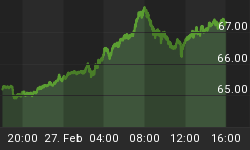Incrementum's 11th annual In Gold We Trust report analyzes gold primarily as a monetary asset and not as a commodity like say hops or barley.
The Liechtenstein-based asset managers conclude that "the competitive position of gold relative to paper money and other asset classes has improved considerably in recent months" and have 169 pages of charts and tables to prove it.
The Economist has its Big Mac index to rate the over- or undervaluation of currencies, but you have to agree with Incrementum that when looking at a suitable comparison to gold, beer is much more appropriate:
Beer drinking gold aficionados should therefore expect the metal's beer purchasing power to increase
According to the authors Ronald-Peter Stoeferle and Mark J. Valek, a “Maß” beer (one liter) at the Munich Oktoberfest in 1950 cost a converted €0.82, the price in 2016 was €10.55.
In 2016 you'd get 111 liters of beer per ounce of gold and the annual price inflation of beer therefore amounts to 4.2% per year since 1950.
Historically the median is at 87 litres making the “beer purchasing power” of gold at the moment above average.
When gold hit record highs above $1,900 in nominal US dollar in 2011, an ounce would only get you 138 litres. The driest year was 1971.
Not surprisingly, the peak occurred in 1980 at 227 liters per ounce of gold when gold topped out at $850:
Incrementum believes "it is quite possible that similar levels will be reached again. Beer drinking gold aficionados should therefore expect the metal's beer purchasing power to increase."
This gold chart will lead to more beer drinking

(Click to enlarge)
By Mining.com















